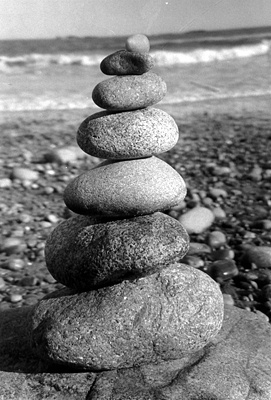All Nonfiction
- Bullying
- Books
- Academic
- Author Interviews
- Celebrity interviews
- College Articles
- College Essays
- Educator of the Year
- Heroes
- Interviews
- Memoir
- Personal Experience
- Sports
- Travel & Culture
All Opinions
- Bullying
- Current Events / Politics
- Discrimination
- Drugs / Alcohol / Smoking
- Entertainment / Celebrities
- Environment
- Love / Relationships
- Movies / Music / TV
- Pop Culture / Trends
- School / College
- Social Issues / Civics
- Spirituality / Religion
- Sports / Hobbies
All Hot Topics
- Bullying
- Community Service
- Environment
- Health
- Letters to the Editor
- Pride & Prejudice
- What Matters
- Back
Summer Guide
- Program Links
- Program Reviews
- Back
College Guide
- College Links
- College Reviews
- College Essays
- College Articles
- Back
Women's Rights
For what seems like all of time, women have been treated worse than men. Whether the issue was voting, getting equal pay at the same position of a job, or just rights to speak or wear the clothing they want. Women have hidden in the shadows of men for as long as time can tell. In the past hundred years, however, there has been a huge sweep of women’s rights. In America women can now vote, get a job, and even be president if they choose to. Their rights have been greatly vamped in America the past century, but unfortunately this is not the case around the world.
In 1986, for instance, a woman from Kuhpayeh, Iran known by the name of Soraya M. went through quite the ordeal. Her husband falsely accused her of adultery when she refused to get a divorce. And, unfortunately for her, adultery is punishable by stoning in their community. The husband had no evidence, though, except that she had smiled and talked to a man in town. Soraya pointed this out to the court. They retaliated by saying that when a woman accuses a man of adultery she must prove his guilt, but when a man accuses a woman she must prove her innocence. Of course, Soraya could not prove her innocence. Her aunt tried desperately to fight for her life but to no avail. Later that week they buried her in sand up to her arm pits with her hands above ground. Her arms have been tied with rope so she can’t deflect the rocks. First, her father is asked to throw two stones at her. This is followed by people related to the case, such as her husband, the man she ‘slept with’ and even her own children. After the family has finished everyone in town picks up their own stones and chuck them at her until she collapses on the ground, bleeding to death.
Thankfully a reporter came through town the next day and Soraya’s aunt told him the story, praying he would “be her voice and tell her story”. He published it as a novel, which became a bestseller, and later a movie entitled ‘The Stoning of Soraya M.’
Despite the overwhelming popularity of Soraya’s story, many stories like hers are never heard. Women all over the countries near Iraq are being stoned. Whether they were at fault or not for the crime they committed, stoning is still no solution. Last spring a 19-year old girl was killed for joining a beauty contest in Afghanistan. Women are continually treated as second class citizens, which desperately needs to change. How can our world move forward if nations are still stuck in the past? It’s a repeating wheel of tyranny and hatred.
There are many stories like Soraya’s, many that are never heard by anyone outside of their village. Thankfully, though, her story was told and it has been exposed to the whole world. Now, while there isn’t much to do, since people aren’t allowed to just waltz in and force people to live a different life style, the world has at least been notified of the situation and is more aware of what’s going on in the world.
Many organizations have realized this problem and are attempting to help. The International Justice Mission is a Christian based organization that focuses on making sure everyone gets their rights and access to a fair trial, something Soraya needed desperately. Another right they help with is women who have had their land taken from them when they became widowed. There is also the Amnesty International which deals with promoting general human rights all over the globe. Right here in my home town of Dallas, Texas there is a group called Human Rights Initiative which helps refugees who have fled their country for religious freedom and to avoid gender discrimination. You can even volunteer as an intern there—preferably if you know Spanish or French.
In conclusion, we still have a lot to do to help women. They are still treated as items, and this needs to change. Also, many still don’t have access to the human right to a fair trial. The more we educate and inform people about the topic the more likely we are to put a stop to it. Now, while it isn’t the entire religion, many Muslims are still treating women poorly in order to live up to “God’s Word” and continue on the traditions and ways of life represented in the Qur’an. While everyone still respects and acknowledges this as an official religion, the things they’re doing to women because of it need to change. One day, I’d be proud to say that I helped bring an end to abuse in women. Who knows? Maybe this essay will inspire someone to change the lives of these women.

Similar Articles
JOIN THE DISCUSSION
This article has 1 comment.
